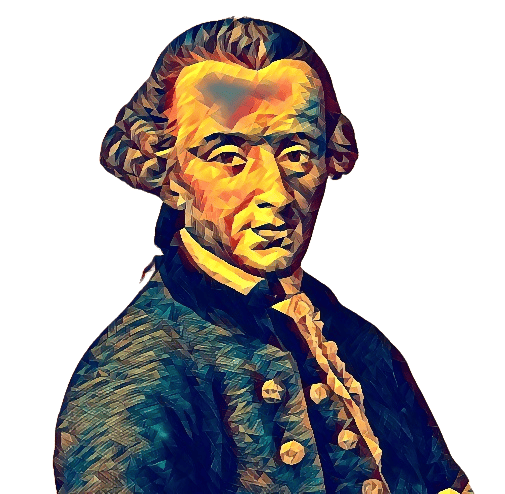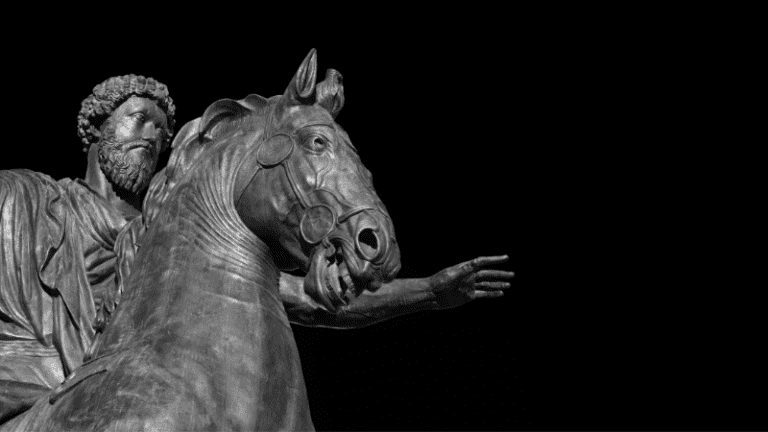About Kant's Copernican Revolution: Everything you need to know
The Copernican revolution in philosophy, which Kant said he initiated, is indeed a significant turning point in the history of human thought. It is based on the realization that our understanding of the world is not exclusively shaped by the world itself, but also by the way we perceive and interpret it.
This turning point refers to the revolution in the astronomical view of the world by Nicolaus Copernicus, who replaced the geocentric view of the world with the heliocentric view. In other words, the replacement of "The world is at the center of the universe" with "The sun is at the center of the universe". Similarly, Kant shifted the emphasis from the assumption that our cognition passively adapts to things to the idea that our perception and our mind actively shape the way we understand the world.
"Hitherto it has been assumed that all our knowledge must be guided by the objects; but all attempts to determine something about them a priori by means of concepts, whereby our knowledge would be extended, came to nothing on this assumption. Let us therefore try whether we can make better progress in the tasks of metaphysics by assuming that the objects must be directed according to our knowledge."
Immanuel Kant
This idea can be illustrated well using the example of color perception: An object that we perceive as green is not green per se, but has properties that make it appear green to us under certain conditions. The color green therefore does not exist independently of a perceiving subject. This leads to the conclusion that our perception not only depicts the world, but also interprets and constructs it.
In the same way, in one of his seminars, Alan Watts solved the age-old question of whether a tree falling in the forest makes a sound if there is no one there to hear it. He explained that it does not make a sound because what we understand as sound does not exist independently of a receiver. The tree produces physical sound waves, but the sound as such is only created by the perception of a listener.
It is also interesting to note that this type of dependency can also be found in various Far Eastern philosophies, such as Hinduism and Buddhism.
In Hinduism, the concept that man is not separate from the universe, but is a way for the universe to experience itself, is deeply rooted in its philosophy, particularly in the concept of Brahman. A fitting quote from the Upanishads, the ancient Hindu scriptures, reflects this idea:
"Tat Tvam As"
चान्दोग्योपनिषद 6.8.7, Chandogya Upanishad
"It's you"
This profound statement from the Chandogya Upanishad is one of the Mahāvākyas (meaning "great sayings") of Hindu philosophy. It states that the individual self (Atman) is not different from Brahman, the ultimate reality or universal consciousness. This concept states that everything in the universe, including human beings, is an expression of the same unique reality.
In Buddhism, the idea of interconnectedness and the non-separation of the individual from the universe is also central. A representative quote from the Buddhist texts that captures this essence can be found in the teachings of the Buddha:
"In heaven, there is no distinction between East and West; people create distinctions from their own minds and then hold them to be true."
Buddha
Although this quote does not explicitly state that humans are a way for the universe to experience itself, it emphasizes the Buddhist doctrine of interconnectedness and the concept of sunyata (emptiness), which states that all phenomena are interdependent and have no inherent existence. This view promotes the understanding that the separation between the self and the universe is a construct of the mind and in reality everything is interconnected and part of a greater whole.
But back to Kant, who incidentally is considered the most important German philosopher (Source). His view has far-reaching implications for our understanding of objectivity and reality. It suggests that our knowledge depends not only on the properties of objects, but also on the structures of our mind and our sensory perception.

In this sense, space and time are fundamental components of our cognitive structure. They are not properties of things in themselves, but forms in which we perceive and organize things. Kant argues that space and time are necessary conditions of every experience and thus exist a priori, i.e. before any concrete experience, in our mind.
This epistemology has significant consequences for philosophy and the sciences. It leads to a new understanding of science, which is no longer seen as a mere description of reality, but as a process in which the human mind is actively involved in the construction of knowledge. This does not mean that science has no objective validity, but that the objectivity of science is anchored in the structures of our mind.
Kant's Copernican Revolution thus marks the transition from a rather passive view of knowledge, in which man is seen as a mere recipient of impressions, to an active view, in which man is seen as a co-creator of the perceived world. This turn has had a lasting impact on the foundations of modern philosophy and epistemology and forms the basis for many contemporary discussions about the nature of knowledge and the conditions of the possibility of science.
If you are interested in this topic, you will probably also like this article, as Hegel was strongly influenced by Kant:







